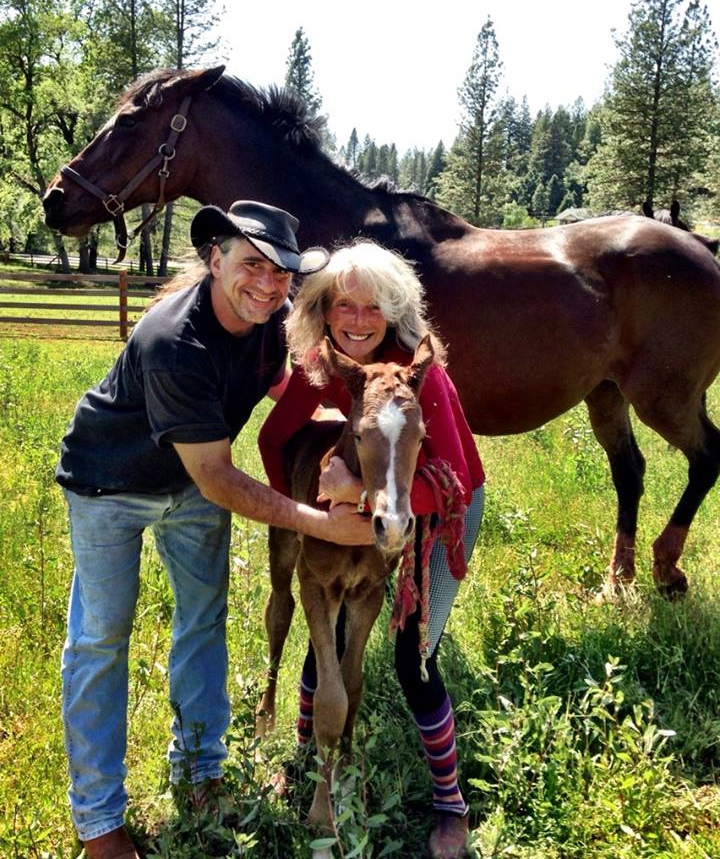
Valerie Ashker at Crow’s Ear Farm in California, where she raises and trains Thoroughbred sport horses.
In three minutes, Valerie Ashker can tell if a Thoroughbred on a racetrack backside is bold enough to become a four-star sport horse.
“When you’re picking a horse out for someone, it’s that first impression that’s so critical, but it’s hard to explain,” says Ashker, proprietor of Crow’s Ear Farm in California, mother of top eventer Lainey Ashker, and Thoroughbred talent scout. “You have to look for a horse that wants to do the Super Bowl. I ask myself when I see a horse, ‘is there a keenness, is the head up and does he look like he’s the cock of the walk?’ ”
Over the years, Ashker has found great T-bred sport horses for some of the best riders, including Stephen Bradley, Kim Severson, Skyeler Icke Voss, Kristen Bond and Doug Payne. And Becky Holder has also worked with Ashker.
In this week’s Clubhouse Q&A, Ashker talks about her first great Thoroughbred sport horse Eight Saint James Place (Jockey Club: Catch the Sand Man) and how her affiliation with the great competitor informed a life spent championing her daughter’s stellar career, and helping other superstars find their Thoroughbred match.
Q: One special Thoroughbred made you a true believer in the value and talent of the breed.
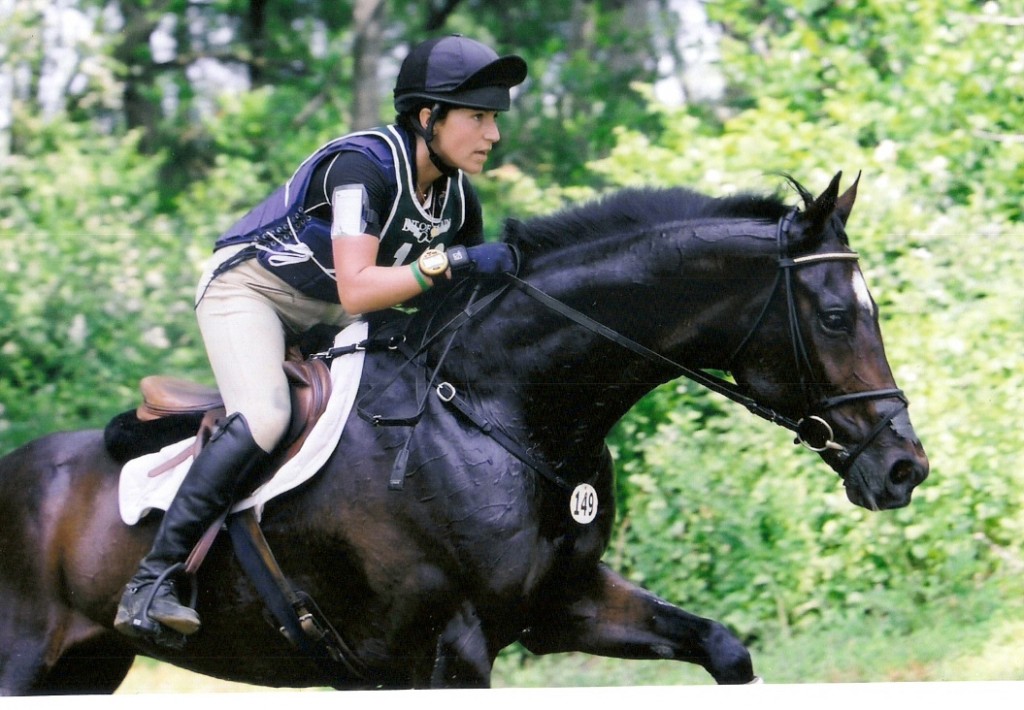
Eight Saint James Place (JC: Catch the Sand Man) was the Thoroughbred sport horse who put the Ashkers on the map. Here he is with Lainey Ashker. Photo courtesy Valerie Ashker
Eight Saint James Place put us on the map. He was my horse and when I moved east with Lainey, she begrudgingly took the horse to Groton House. She didn’t really like him at first, but he was all I had, and so she said, “I guess I’ll ride him.” But after, she came back with a huge smile on her face. That horse took her all the way to Rolex, twice.
He died of an aneurism in 2007 at age 16 after completing Jersey Fresh. (Please see Lainey Ashker’s blog entry here).
That horse was all heart and he raised the bar for us. Everything Lainey learned as a rider they learned together. She wasn’t advanced when she started on him, and she’s the rider she is today because of that horse.
Q: How do you find the diamond in the rough when looking for a Thoroughbred sport horse?
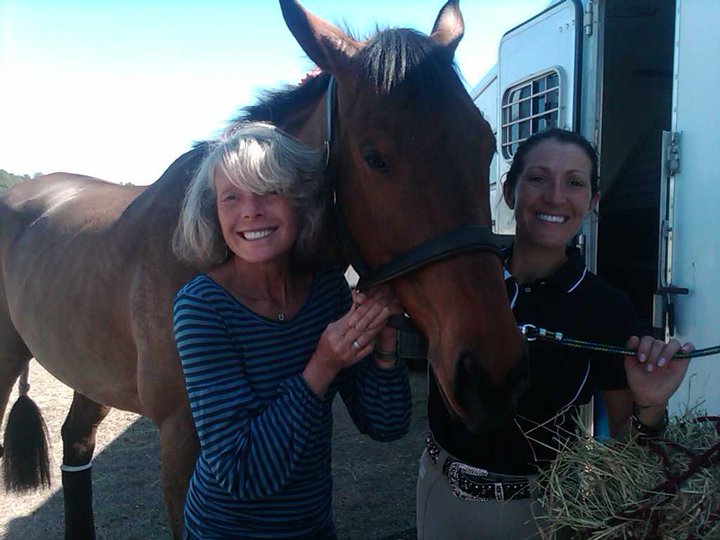
Valerie and Lainey Ashker are a mother-daughter team who cherish the heart of the Thoroughbred sport horse.
One thing to remember is that you can’t judge a book by its cover. By that I mean they are not necessarily the horses with the best breeding. I’ve taken three backyard-breds to Rolex, and I’ve had horses I’ve gotten for people who some people, quiet frankly, wouldn’t want. When I found Jaime at Pleasanton Fairgrounds in California, all I saw was his faces sticking over the stall door with a big star.
The first thing I look for is that keenness. They need to have an attitude, they need to be bold, as if they’re saying, ‘Hey, look at me!’
Q: Once a Thoroughbred demonstrates the personality, you need to see them shake a tail feather.
I never want to see them lunging. I always ask to see them turned out so I can see how they move on their own. A good mover is critical for Eventing today. You need to have a horse with natural movement that can put them in the top 10 after the first day, because it’s too hard playing catchup (gaining points) after a poor Dressage test.
People are breeding for Dressage movement today, so it’s important to find a horse who has a open, reach-y, ground-covering movement with a push-from-behind trot. I have to see that in the Thoroughbreds I choose, and I also have to see an uphill carriage.
Q: Sometimes you see a horse so naturally gifted you can’t sleep at night.
I got this horse for Skyeler Icke Voss. He’s a gray, rather hot, gorgeous mover named Office Hours. She renamed him Argyle. When I saw him turned loose about a year ago, he was such a gorgeous mover that I actually went to a claiming race at Los Alamitos to claim him. It was a huge ordeal. I befriended a trainer to help me, and we claimed that horse on the evening he won. I was so excited you’d think we’d won the Derby. Then I brought him up to my farm in California and worked with him. He’s fabulous today. He’s one of Skyler’s top horses.
Q: What is your overall impression of how Thoroughbred sport horses are perceived today?
Thoroughbreds are my passion, and you’ll never see me breeding anything other than an American Thoroughbred. Because what stands up to all other breeds is their heart. You can’t X-ray the heart to see what’s in it. You have to nurture it.
And because of the work by people like Steuart Pittman (Retired Racehorse Project), who I love and adore, and riders like Lynn Symansky, who just got picked for the US Team, people like that are helping to shine a light on the Thoroughbred sport horse along with the Jockey Club’s TIP (Thoroughbred Incentive Program). These horses from day 1 all need to have a second career in their futures, and now awareness is growing that there are some really good (sport) horses out there in the ranks of retired racehorses.
<end>
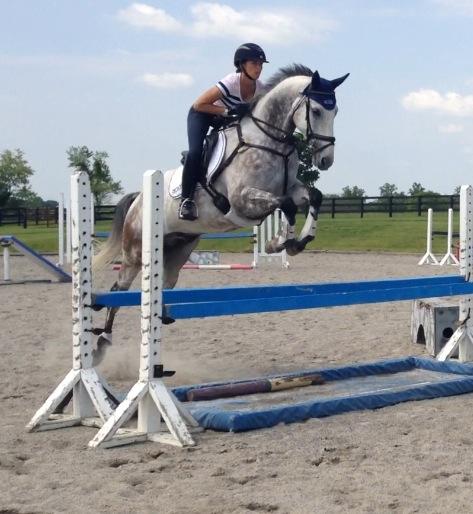

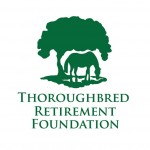
[…] Click HERE to read Valerie’s interview on Off Track Thoroughbreds. […]
Nice article, Val! What happened to the colt you took to Calif. a few years ago? I should remember his name, but….
There is no other breed that has the heart of a Thoroughbred!!!!
Amen!
I never change my horses names. They show under their JC names. I had a woman walk up to me at a show and tell me she had wondered what had happened to my horse. She was thrilled to see he had landed softly and was doing fine. She would not have known him under a different name.
Love hearing these stories.
Boy, the mare in the top photo does NOT look happy to have people all over her foal – watch out! 🙂
Question – why don’t more people keep the JC names when taking OTTBs on to their second careers?
I was thinking the same thing! She looks ready to murder!!
Jessica, protective Momma!